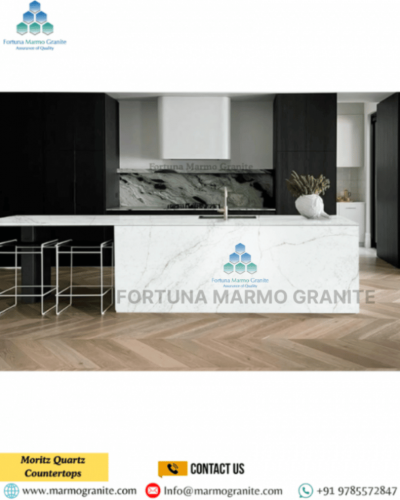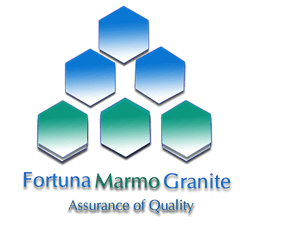Eco-Friendly Engineered Quartz Countertops: Sustainable Style for Modern Spaces
Eco-Friendly Engineered Quartz Countertops In today's world, environmental consciousness is not just a niche concern but a global necessity. The choices we make at home play a vital role. From the energy we use to the materials we choose, every decision affects the planet. Yet, In interior design, especially with kitchen and bathroom countertops, beauty and durability often carry an ecological cost. Eco-friendly engineered quartz is changing this balance.
Moreover, More than a stylish trend, eco-friendly quartz countertops mark a big step toward sustainable living. In addition, They combine natural quartz crystals with recycled glass, porcelain, and mirror fragments. Additionally, Low-emission resins bind these materials, creating one of the most eco-friendly surfaces available. Consequently, Unlike traditional stone quarrying that depletes resources and scars landscapes, engineered quartz production emphasizes waste reduction, resource efficiency, and lower carbon emissions.


The Allure of Engineered Quartz: A Brief Overview
Before exploring its eco-friendly qualities, it's important to understand what engineered quartz is. Unlike natural stone, which is quarried, engineered quartz is man-made. It contains about 90–95% ground quartz, one of Earth's hardest minerals. Manufacturers mix it with polymer resins, pigments, and often recycled materials. They then compact this blend under high pressure and heat to create a non-porous, durable, and versatile slab.
Its popularity comes from many advantages. It offers outstanding hardness and strong resistance to scratches, stains, and heat. It also provides consistent color and pattern, unlike natural stone, and requires little maintenance. For years, homeowners have chosen it as a top option for kitchens and bathrooms thanks to its balance of practicality and elegance.
Beyond the Basics: Defining "Eco-Friendly" Engineered Quartz
Utilizing Recycled Content: A Circular Economy Approach
One of the most significant eco-friendly attributes of engineered quartz is its ability to incorporate recycled materials. Many manufacturers are now using post-consumer and pre-consumer recycled glass, mirrors, ceramics, and even stone scraps in their compositions. This not only diverts waste from landfills but also reduces the demand for virgin raw materials.
- Post-consumer recycled content refers to materials that have served their intended purpose and been discarded by consumers (e.g., glass bottles, old mirrors).
- Pre-consumer recycled content refers to waste generated during manufacturing processes (e.g., offcuts from glass production, ceramic tile waste).
Sustainable Sourcing of Virgin Materials: Minimizing Extraction Impact
While recycled content is crucial, a certain percentage of virgin quartz is still necessary. Eco-conscious manufacturers prioritize sourcing this virgin quartz responsibly. This means:
- Proximity of quarries: Sourcing quartz from geographically closer quarries reduces transportation emissions.
- Responsible mining practices: Ensuring that mining operations adhere to environmental regulations, minimize land disruption, and implement reclamation efforts.
- Reduced reliance on rare earth minerals: Unlike some other materials, quartz is abundant, reducing concerns about depletion of rare resources.
Low VOC Emissions: Healthier Indoor Air Quality
Volatile Organic Compounds (VOCs) are chemicals that can be released into the air from various building materials, contributing to indoor air pollution and potential health issues. Eco-friendly engineered quartz countertops are manufactured with low or no VOC-emitting resins and binders. This ensures that your home's air quality remains healthy, a vital consideration for families and individuals with sensitivities. Look for certifications like GREENGUARD or equivalent, which verify low chemical emissions.
Efficient Manufacturing Processes: Reducing Energy and Water Consumption
The manufacturing process itself can be a significant source of environmental impact. Eco-friendly quartz producers invest in technologies and practices that minimize energy and water consumption:
- Renewable energy sources: Utilizing solar power or other renewable energy to power factories.
- Water recycling systems: Implementing closed-loop water systems to reuse water in the manufacturing process, significantly reducing water waste.
- Optimized production lines: Streamlining operations to reduce waste and maximize efficiency.
Sustainable Style: How Eco-Friendly Quartz Elevates Modern Spaces
- Versatility in Design: A Palette for Every Vision
Engineered quartz offers an unparalleled range of colors, patterns, and finishes. From classic whites and grays that mimic natural marble to bold, vibrant hues and sophisticated veining that replicates granite, the design possibilities are endless. This versatility allows designers and homeowners to create truly unique and personalized spaces, whether they lean towards minimalist, industrial, contemporary, or even traditional aesthetics.
- Consistency and Predictability: Precision in Design
Unlike natural stone, which can have significant variations in color and pattern from slab to slab, engineered quartz offers consistency. This predictability is invaluable for large projects or when matching multiple pieces, ensuring a cohesive and polished look throughout your space.
- Non-Porous and Hygienic: A Clean and Healthy Home
The non-porous nature of engineered quartz means it doesn't absorb liquids or harbor bacteria, mold, or mildew. This makes it incredibly hygienic and easy to clean, requiring only mild soap and water. For kitchens and bathrooms, where cleanliness is paramount, this feature is a significant advantage, reducing the need for harsh chemical cleaners.
- Low Maintenance: More Time for Sustainable Living
The ease of maintenance associated with engineered quartz directly contributes to a more sustainable lifestyle. Without the need for regular sealing (unlike natural stone), harsh chemicals, or extensive scrubbing, you save time, reduce your consumption of cleaning products, and minimize your environmental impact.
Conclusion
eco-friendly engineered quartz countertops represent a thoughtful and forward-thinking choice for those seeking to combine modern design aesthetics with sustainable living practices. As global awareness grows about the environmental impact of traditional building materials, engineered quartz has emerged as a smart and responsible alternative, crafted using a combination of natural quartz and recycled materials bonded with non-toxic resins. Yet, These countertops are not only visually stunning, offering a wide range of colors, patterns, and finishes to complement any interior style, but they are also engineered to provide superior durability, resistance to stains, scratches, and bacteria—making them ideal for kitchens, bathrooms, and high-traffic areas. The manufacturing process of engineered quartz uses less water, emits lower levels of pollutants, and supports recycling efforts, contributing positively to a greener planet.
Moreover, At Fortuna Marmo Granite, we take immense pride in being part of this sustainable shift by offering premium-grade engineered quartz countertops that not only elevate the beauty of modern spaces but also reflect our deep commitment to environmental stewardship. With years of expertise in stone manufacturing and an unwavering dedication to quality, Fortuna Marmo Granite ensures that every slab we supply upholds the highest standards of eco-friendliness, durability, and design excellence. In addition, By choosing our products, clients are not only enhancing the visual appeal and functionality of their spaces but also making a conscious investment in the health of our environment. As we continue to innovate and lead in the natural and engineered stone industry, we invite homeowners, architects, and designers to partner with us in building a sustainable, stylish, and responsible future—one countertop at a time.

